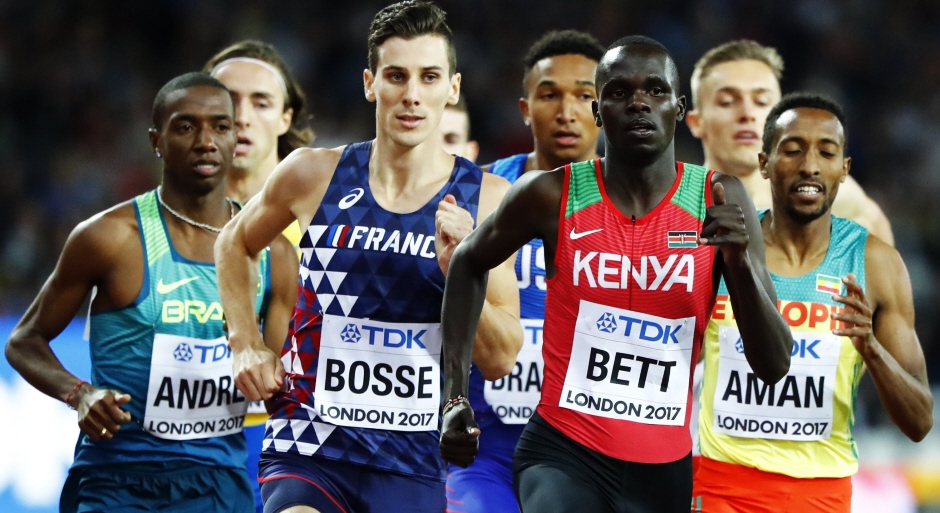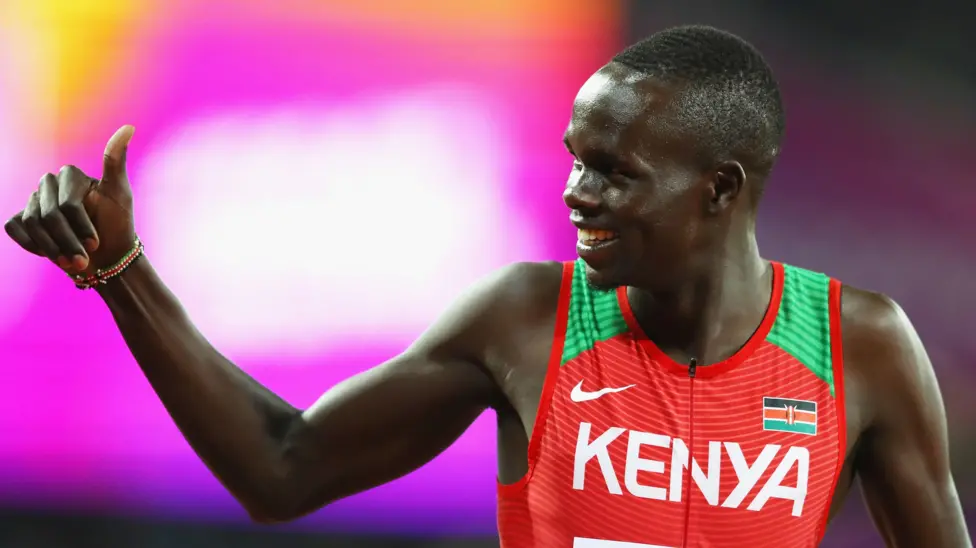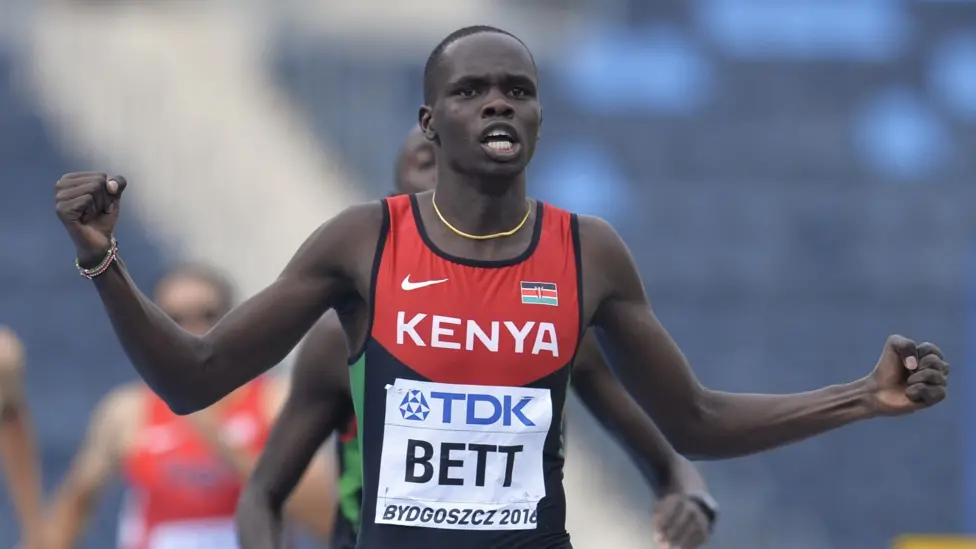The news of Kipyegon Bett’s hard struggle with depression and drug abuse emerged shortly after his death and revealed the darker side of athletics.
The former world champion in under-20 athletics died at the age of 26 in Bomet County, Kenya, following a short illness.
The 800m specialist rose to stardom after winning his junior title at the 2016 World Under-20 championships and proceeding to claim bronze with a remarkable victory a year later at the 2017 senior world championships in London.
However, his career started going downhill in 2018 when he was handed a four-year doping ban after testing positive for erythropoietin (EPO), a banned substance. Since then, Bett struggled with substance use and his once-promising career took an irreversible twist.
His suspension from athletic events at age 20 marked the genesis of a spiral downfall and eventually led to depression and substance use disorder.
Bett’s sister talks about his athletics career.

We tried to help him stop drinking, but whenever we wanted to take him to rehab, he would disappear from home for days.” Her sister Purity Kirui told BBC Sport.
Bett’s ineligibility period came to an end in August 2022 but the frustrations from his suspension added pressure to his mental health struggles and the athlete never made a comeback.
“I tried to get him back into athletics when his ban ended by getting him a running kit and shoes.”
Despite multiple attempts by family and friends to guide Bett from alcoholism and back to the athletic track, His addiction problem persisted and could not be steered away.
“Before his death, we had a plan to try one more time to take him to a rehabilitation center in Kisumu.” The sister continued.
Kirui, a 3000m steeplechase gold medalist for the 2014 Commonwealth Games, said being absent from the track took a great toll on Bett’s wellbeing since he was just 20 years old at the time of his ban.
“When Kipyegon was banned, he started drinking a lot, wouldn’t do well, and suffered depression.”
Bett was the fourth-born child among six siblings, he followed his sister’s footsteps and took up athletics.
His isolation from athletics, a sport that once earned him respect and fame only heightened feelings of despair in his life.
Bett’s Coach talks to journalists.
“Bett joined our training group when he was in primary school because he was inspired by Purity to run,
“He was a gifted athlete who even beat 800m world record holder David Rudisha in a race. That showed he had high potential.

“I expected him to come back to athletics once his ban was over, but he couldn’t do so due to many challenges. I think sometimes once an athlete is banned there’s some depression and getting into activities that cannot support an athletics career.” Bett’s coach Japheth Kemei told BBC Sport.
Bett’s struggles explain the intricate relationship between mental health and sports. Athletes who receive doping bans are more likely to slip into depression and career-threatening escapades.
The athlete’s tragic downfall has unraveled a broader misfortune doubled by the lack of proper support in the Kenyan sports arena.
Korir Barnaba, the youth development director at Athletics Kenya, spoke about the potential impacts of doping following Kipyegon Bett’s death.
“The impact of doping is always catastrophic, especially for a young and inexperienced lad, we wish those who introduce such evil machinations to the young souls can understand the implications of such chemicals and the mental damage, even if they are not caught.”
Financial woes for the Anti-Doping Agency.
Bett was one of Kenya’s high-profile athletes sanctioned by the Athletics Integrity Unit for anti-doping violations.
The country made significant steps to combat doping, particularly after the 2016 Rio Olympics but the efforts have not yielded much results, Kenya’s anti-doping measures have not solved any problem.
The World Anti-Doping Agency expressed concerns with the Kenyan government’s decision to cut the anti-doping operational budget, citing the negative impact on the future of Kenyan athletes.
The reduction of funds meant to support the Anti-Doping Agency of Kenya (ADAK) from Ksh 288 million to Ksh 20 million have raised serious doubts about the Ministry of Sports and its dedication to the Kenya’s athletic future and clean sportsmanship in the nation.


